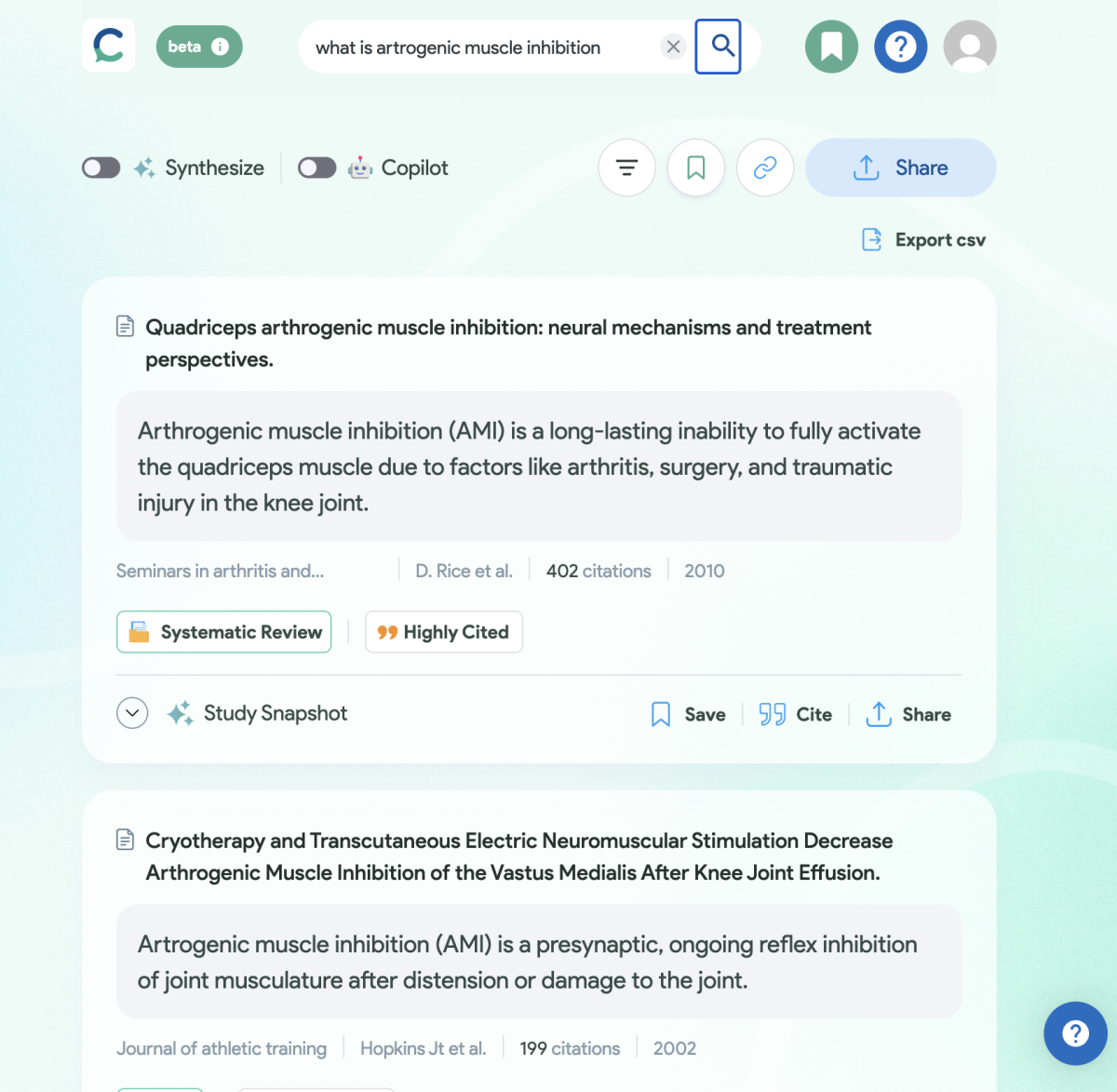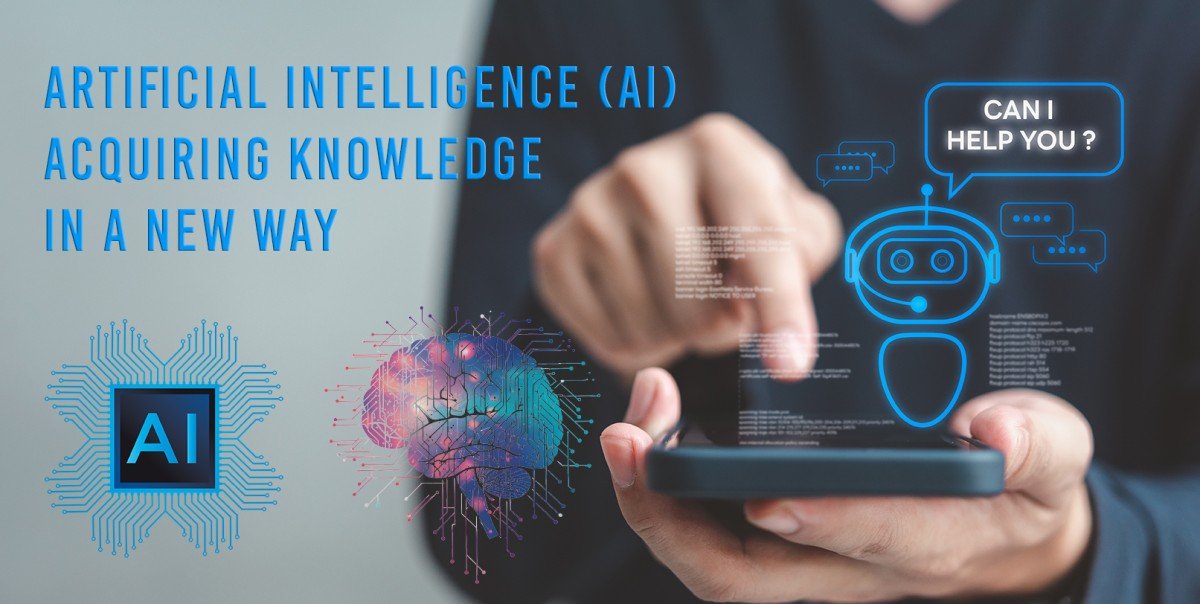Artificial intelligence (AI) - here to stay! How AI will help us to find informations
ChatGPT and DeepL are apps that many of us already use regularly, but the question arises as to whether and how we can and should use AI for knowledge acquisition in physiotherapy.
This blog deals with the possibilities that are already offered by the current software applications and is intended to help you become more familiar with the topic of AI.
First things first - from my point of view, we should definitely start getting to grips with AI. Why?
On the one hand, so that we don't fall behind in the modern healthcare system and, on the other, so that we can offer our patients the best possible (evidence-based) treatment.
But what are its strengths and weaknesses and shouldn't we perhaps be afraid?
First of all, how does AI work?
AI is based on the so-called Large Language Models
Large Language Models (LLM) are computer programmes that have been trained to understand and generate human language. They learn this by analysing huge amounts of text from the internet or other sources. This enables them to write texts, answer questions and even communicate with people in natural language.
But this is also one of the problems. The programme gives us the feeling that we are communicating with a human being. Of course, children and young people, as well as adults, need to be made aware that we are only communicating with an extremely advanced computer programme and not with a real person.
ChatGPT-3, for example, is based on over 175 billion parameters and has been trained with 45 terabytes of text data. (Source: openai.com)
Given the improvements and enhancements in GPT-4, it can be assumed that the amount of data used to train GPT-4 was even larger in order to further increase the performance and accuracy of the model. However, the exact amount of data for GPT-4 has not been made public by OpenAI. There is no end in sight to the possible improvements.
Artificial intelligence (AI) works by learning from LLM data. You can think of it as a very advanced pattern recognition system. AI systems analyse data (e.g. images, texts, numbers) and try to recognise patterns or regularities in it. Based on these findings, they can then make predictions, take decisions or perform tasks that would normally require human intelligence.
Which apps can already help us, especially in physiotherapy?
- DeepL
DeepL is known to most of us as a translation programme, but DeepL is much more than that. Based on AI, DeepL is not only one of the best translation programmes for simple and complex texts, but it can also translate entire PDFs, Word documents, Power Points and html files. Unfortunately, this is only possible in the paid version (DeepL Pro), but it is well worth investing a few euros here.
The desktop version of Deepl Pro also offers Deepl Write, which checks written texts for spelling mistakes and grammar and offers different (improved) formulations on request. Of course, the whole thing works in countless languages and makes it easier to write texts, emails and web content.
In particular, the translation of PDF files can make complicated scientific texts easy to read and thus be a help for physios who are not used to reading scientific papers on a regular basis or who simply don't feel like struggling with complicated scientific English.
https://www.deepl.com/translator
- ChatGPT-3 vs. ChatGPT-4
ChatGPT is certainly one of the best-known AI applications. Since 2022, this programme has been revolutionising every possible area. The first chatbot called Eliza was published back in 1960. However, the technology has evolved significantly, particularly with the creation of Google Brain (2011) and Google's invention of the Transformer model (2017).
The paid version of ChatGPT-4 has been available since March 2023.
GPT-4 offers significant improvements over GPT-3 in terms of accuracy, context understanding, adaptability and security, making it a more powerful and versatile tool for a wide range of applications.
The main difference lies in its multimodal application capabilities, which means that it can interpret and react to not only text, but also other forms of data such as images, tables and data.
This opens up unimagined possibilities, such as summarising articles with just one click. Chat GPT thus provides the most important information of an article in the shortest possible time or can be used to ask for specific content in an article.
The problem with ChatGPT and other AIs, however, is that they can surprisingly not only provide facts, but also invent information. This is known as "AI hallucination".
Although this has improved significantly with ChatGPT-4, false information cannot be ruled out 100%.
This clearly shows that, at the moment at least, AI cannot replace humans. An expert is needed to be able to interpret the expert question correctly.
Feldmann et al (2023) showed that the rate of hallucination could be reduced by 98.8% through the targeted use of prompts (questions and requests to the AI). When used optimally, it can help physiotherapists to find relevant information more quickly. However, a certain amount of experience and knowledge is required to make the best possible use of AI.
- Consensus
Consensus is probably one of the most helpful AI-based apps for physios, as it responds in real time to simple questions such as:
"what evidence is there for cervical instability tests?" or "what is artrogenic muscle inhibition?", are answered in real time with purely scientific information.
The Consesus team has set itself the task of making evidence-based information easily accessible to everyone.
Their mission: "Make Expert Knowledge Accessible and Consumable for All"
There are two simple ways to use the app.
1. directly in Chat GPT-4
where you select Consensus as your partner app, ask the question and receive a short statement as text.
2. or you can use the web application consensus.app much more efficiently, where you can start searching immediately after free registration and get an appealing overview of the content of the paper, the study design, the abstracts and a link to the original article. This means that incorrect information is (almost) impossible. The citation of the article was always 100% correct, at least in my research.
Does Consesus now replace PubMed and Co?
Of course not! But especially for a quick search in the lunch break before the next patient arrives, it helps to get up to date on a certain topic without having to deal with PICOT questions and MeSH terms.
But not only that, an additional search using AI can also be helpful for researching scientific papers, such as master's theses.

Screenshot of a search query at Consensus.app
- Elicit
Elicit works in a similar way to Consesuns.
Here too, evidence-based information can be accessed by means of a simple question, almost regardless of the language.
Elicit provides a summary of the first 4 abstracts as well as an overview of the existing literature. This can be sorted according to the frequency of citations, among other things. The reference to the doi entry always provides a link to the original article.
Another advantage of Elicit is that the AI can extract data from PDF files.
Last but not least, I would like to introduce Trinka
- Trinka
Are you currently writing a scientific article or a scientific paper?
Trinka is an AI-powered free online grammar checker and spell checker specifically designed for scientific and technical writing. In addition to advanced grammar and spelling checks, Trinka improves writing in terms of vocabulary, tone, syntax and more. (Source: trinka.ai)
But the application can do much more. It promises coherent paraphrases while retaining the original meaning.
Last but not least, you can send your work through its own plagiarism scan and even have it checked to see whether AI tools such as Chat GPT were used to create the text.
https://cloud.trinka.ai/signin
Are AI apps the perfect help?
No, they have countless strengths and a few weaknesses.
Do AI apps have the potential to change physiotherapy?
I think so.
The possibilities for acquiring knowledge are constantly improving. In addition, successes can be tracked and improved in real time in the future and countless other possibilities beyond our current imagination could arise.
Should we be afraid of AI?
No, but we should be aware of its strengths and weaknesses. AI will provide us with ever better and more targeted information and suggestions. But it is up to us to decide what we do with it.
Can we do without AI?
No, certainly not. AI will come, whether we like it or not. But it will also bring unimagined possibilities that will make our work easier and better
It will definitely remain exciting!
PS: Feel free to write in the comments what you think about AI in physiotherapy!





Comments